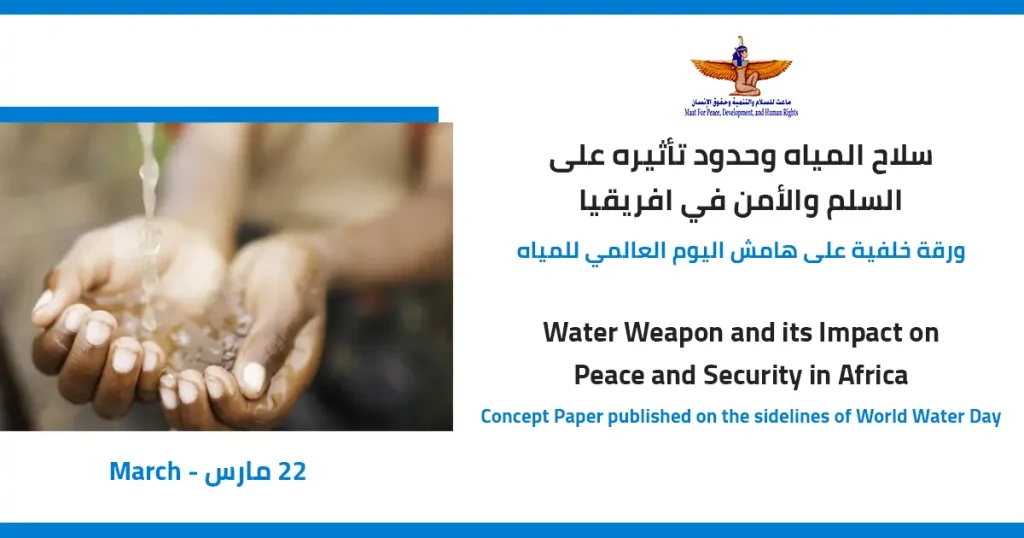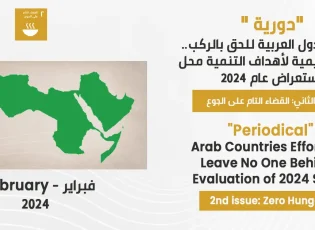Participants: The position of Minister of Local Development should be abolished because it is not useful
Aqeel: We strive to be the link between the citizen and the legislator
The Maat Foundation for Peace, Development and Human Rights, which has the consultative status at the United Nations Economic and Social Council, concluded Sunday February 28 a round table on the principles and main texts proposed for the draft Local Administration Law within the framework of the “Universal Periodic Review as a tool for improving public policies during the transitional phase”, implemented by the Foundation Maat was funded by the European Union over the course of 2016/2017.
The round table hosted a group of parliamentarians, representatives of political parties, representatives of civil society organizations, constitutional experts, state council advisors, legal researchers and former members of local councils. The round table discussed the principles and main texts proposed for the draft local administration law that the institution seeks to develop as part of an integrated action plan aimed at adopting new policies compatible with Egypt's obligations to the universal periodic review.
The round table concluded with a set of recommendations to be incorporated into the final draft of the law that will be issued by the Corporation's Policy Analysis Unit, to be published and sent to the concerned authorities with the aim of mobilizing the adoption of the draft Local Administration Law by the House of Representatives. The most important of these recommendations include:
Establishing a competent body to oversee the work of the local people's councils, which can be formed from (Parliament - the executive body - or an independent body).
Establishing a higher commission for the localities that includes a larger number of elected representatives, provided that the elected members are the president and deputy of each local popular assembly, and include in its formation all the governors of the republic in addition to a representative of the government.
Re-division of the administration of the Republic according to geographical areas, population census, and financial resources for each governorate.
Work to find legislations that give the right to provide financial resources and give more space to supervise local people's councils on the development of small and micro local industries.
Pushing for the election of service providers in all local units and merging the local executive councils and the elected local popular council so that only an elected local popular assembly.
Restore the right to question the local people's councils.
Approval of the absolute closed list in the electoral process for local popular councils.
Reducing the number of members of the local administration with the addition of an article in the law that allows escalation from smaller units to the next to the governorate’s People's Assembly.
Abolishing the position of Minister of Local Development.
Ayman Aqil, President of Maat Foundation for Peace, Development and Human Rights affirmed that the Foundation is striving very hard to be the link between the citizen and the legislator as well as the executive bodies in the framework of partnership with Parliament and the government in following up on the implementation of Egypt's international commitments, which it committed to before the Human Rights Council in March 2015 in Geneva with the aim of improving The political and living conditions of the citizens, especially in light of the changes that Egypt is currently going through, which requires reviewing many of the organizing legislations in order to comply with what was approved by the new constitution and international agreements.
It is worth noting that the aforementioned project seeks to enhance the role of the universal periodic review to improve public policies and reform human rights in Egypt by actively engaging civil society organizations, activists and media professionals in following up and advocating for the necessary reform of human rights, in addition to adopting new policies compatible with international human rights standards. Based on the results of the UPR 2014. The project's activities target 5 main regions, including: Canal Region, Sinai and East Delta Region, Central and Western Delta Region, Greater Cairo Region, Northern Upper Egypt Region, and Southern Upper Egypt Region.
You can visit the official project page for more information and updated news:











